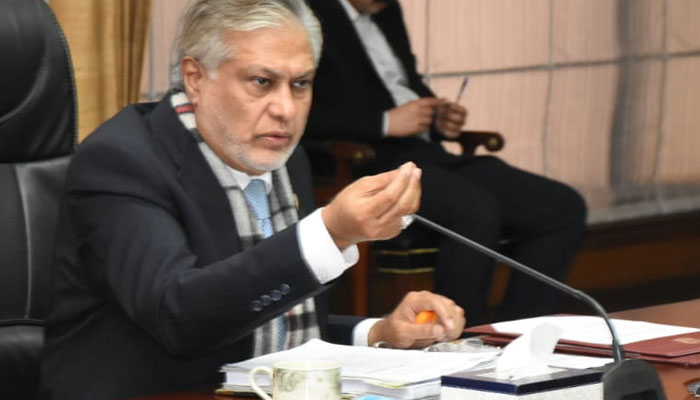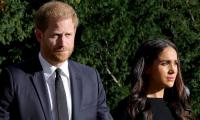News Analysis: Pakistan’s irreparable economy?
Pakistanis must now brace for a hike in petrol and diesel prices in the coming days
AMID a rapidly tumbling economy, the writing on the wall for Pakistan’s future is clear – that the country faces another monumental crisis in its history.
Following the State Bank’s removal of a cap on Pakistan’s foreign currency exchange rate, the steep drop in the value of the rupee is bound to add to an already high rate of inflation. The change came shortly after the State Bank of Pakistan (SBP) raised its interest rate to 17 percent as it sought to battle inflation hovering around 30 percent.
In a sharp departure from Finance Minister Ishaq Dar’s publicly repeated claims of keeping domestic fuel prices unchanged, Pakistanis must now brace for a hike in petrol and diesel prices in the coming days.
As petroleum products are imported in Pakistan, the rupee’s devaluation must force not just a jump in domestic fuel prices, the resultant inflation is bound to hit a range of consumers from owners of private transport to public transport such as trucks and buses.
Besides, a jump in the price of diesel will inevitably add to the cost of production in agriculture and industry. Eventually, though not of direct consequence to ordinary consumers, airlines are likely to raise the cost of domestic and international rupee denominated airfares.
Meanwhile, the official rant of placing the guilt of Pakistan’s present day economic troubles upon the last government is neither true nor productive. Dar came to the job in his latest tenure, promising to oversee the appreciation of rupee to a rate of 200 rupee to a US dollar. And the ultimate outcome in today’s forex market is nothing but a massive departure from that ambition.
Besides, a delayed return to the IMF’s loan programme has cost Pakistan dearly in the past and is likely to do so in future. The reported planned hike in domestic gas tariff of over 70 percent is not just a sharp hit to consumers.
The added possibility of backdating the charge to July last year when the present financial year began, must translate into large arrears in the coming gas bills. Additionally, with a massive circular debt surrounding the energy sector, a substantial jump in electricity costs is likely to come soon.
Other areas set to be hit include more expensive imported raw material for daily use items notably medicines, food items and consumer goods. Meanwhile, Pakistan’s grim outlook for the foreseeable future has coincided with ruling politicians upping the temperature.
On the one hand, the intensifying push to arrest opposition politicians such as Fawad Chaudhary of PTI is bound to backfire as often witnessed in the past while the rising political temperature triggered by the PTI stepping up its agitation will only aggravate prospects for eventually stabilising Pakistan’s economy.
On the other hand, placing the onus of responsibility on past regimes as done recently by Prime Minister Shehbaz Sharif and Finance Minister Ishaq Dar, only promises to deepen the government-opposition divide over future economic policies.
Ahead of the arrival of a vital mission representing the IMF (International Monetary Fund) on Tuesday (31st January), Pakistan’s bubbling political temperature saw both Sharif and Dar set the tone for their political messaging on Friday when they chose to publicly target the PTI for Pakistan’s present day economic pitfalls.
The overall direction of Pakistan raises a pertinent question – exactly what is needed to resurrect what appears to be Pakistan’s irreparable economy.
In an election year, mounting and deeply unpopular reforms to overcome present day economic challenges are neither within the capacity of the ruling structure and other mainstream political parties, nor their publicly verified vision.
An alternative framework must be built upon the Pakistani public’s broad support to painful adjustments, notably seeking much more revenue than collected by the Pakistani state and steep cuts in imports alongside targeting of hitherto missing recovery in exports.
But is the Pakistani public set to rally behind a class of tried politicians with tainted pasts? That question remains negative as Pakistan faces what for now appears to be an irreparable economy.
-
 Prince Harry On Moment Meghan Markle Made Him Feel Like A ‘teenager’
Prince Harry On Moment Meghan Markle Made Him Feel Like A ‘teenager’ -
 Zayn Malik Debuts Four Unreleased Songs At Vegas Residency Premiere
Zayn Malik Debuts Four Unreleased Songs At Vegas Residency Premiere -
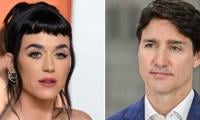 Katy Perry 'wants' Justin Trudeau’s Baby
Katy Perry 'wants' Justin Trudeau’s Baby -
 Prince William, Kate Middleton’s Frustrations Rise As Divorce Rumors Finally Get Answered?
Prince William, Kate Middleton’s Frustrations Rise As Divorce Rumors Finally Get Answered? -
 Charlie Puth Gets Real About Super Bowl Anthem Role
Charlie Puth Gets Real About Super Bowl Anthem Role -
 Kim Kardashian Explains Why She Rarely Sees Jonathan Cheban Now
Kim Kardashian Explains Why She Rarely Sees Jonathan Cheban Now -
 Meghan Markle Spilt ‘third Date’ Magic With Prince Harry
Meghan Markle Spilt ‘third Date’ Magic With Prince Harry -
 When Will 'Jujutsu Kaisen' Season 3 Ep 4 Come Out?
When Will 'Jujutsu Kaisen' Season 3 Ep 4 Come Out? -
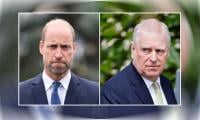 Prince William Lays Down The Law As Andrew’s Exile Nears: ‘Even If He Spirals Out Of Control’
Prince William Lays Down The Law As Andrew’s Exile Nears: ‘Even If He Spirals Out Of Control’ -
 Phil Collins Shares New Details About His Long-running Health Struggles
Phil Collins Shares New Details About His Long-running Health Struggles -
 Paris Hilton Reveals Sweet Sibling Dynamic Between Phoenix, London
Paris Hilton Reveals Sweet Sibling Dynamic Between Phoenix, London -
 Chris Pratt Gets Honest About Panic Around AI
Chris Pratt Gets Honest About Panic Around AI -
 Jennifer Garner Shares Rare Parenting Insight After Ex Ben Affleck's Remark: 'I've Been There'
Jennifer Garner Shares Rare Parenting Insight After Ex Ben Affleck's Remark: 'I've Been There' -
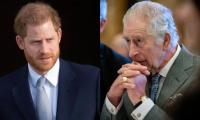 King Charles Exits London Without Seeing Prince Harry
King Charles Exits London Without Seeing Prince Harry -
 Kim Kardashian Praises Taylor Swift Despite Past Feud: 'Great Artist'
Kim Kardashian Praises Taylor Swift Despite Past Feud: 'Great Artist' -
 Stefon Diggs Pays Tribute To Cardi B: ‘I Don’t Talk Too Much But’
Stefon Diggs Pays Tribute To Cardi B: ‘I Don’t Talk Too Much But’
